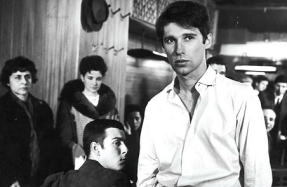
he image of Paul Mescal lost and losing himself in a crowded, strobe-lit dancefloor is the most haunting leitmotif in Charlotte Wells’ debut feature , a film that would be acutely musical in feel and structure even if it weren’t powered by such a carefully curated selection of underappreciated late-’90s UK chart faves (All Saints and Chumbawamba included). As glimpsed in the flickering light, his face expresses both the loved-up chemical bliss expected of the era’s aging ravers and a more disquieting sense of vacancy; it’s as if he’s not all there. And while that phrase risks being more suggestive of some garden-variety weekender blasted on E, here it means something more tragic. As played by Mescal with great care and precision, Calum is a man with






